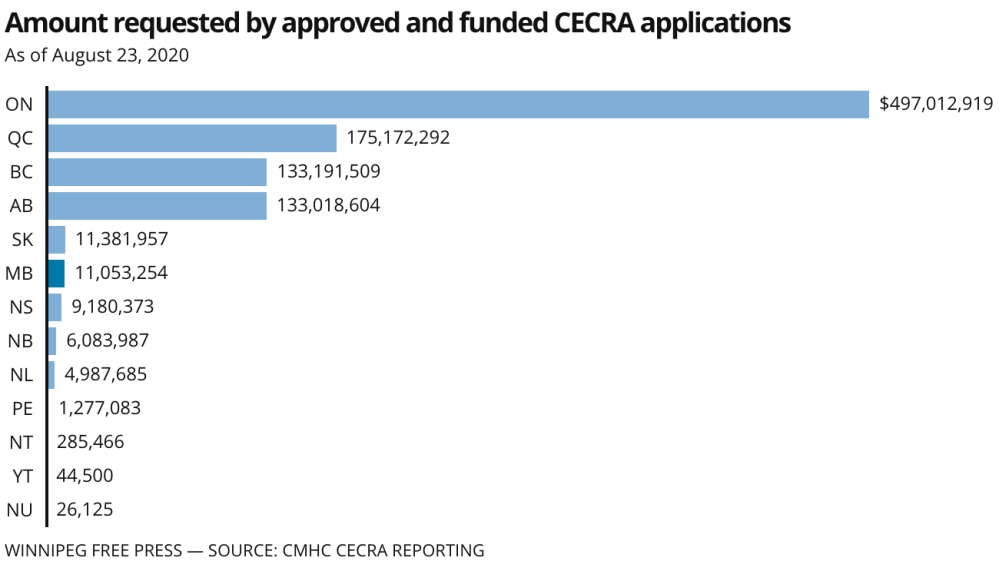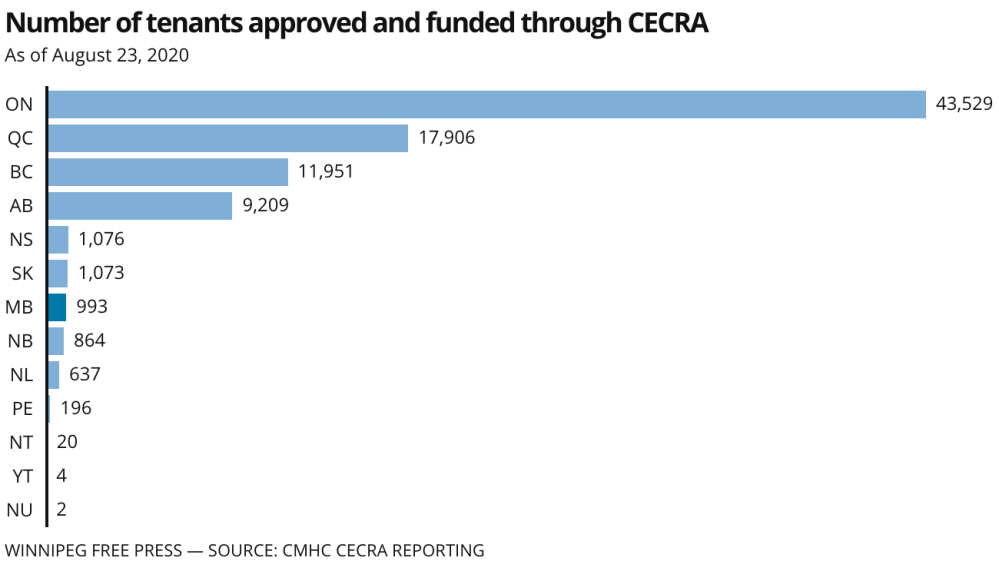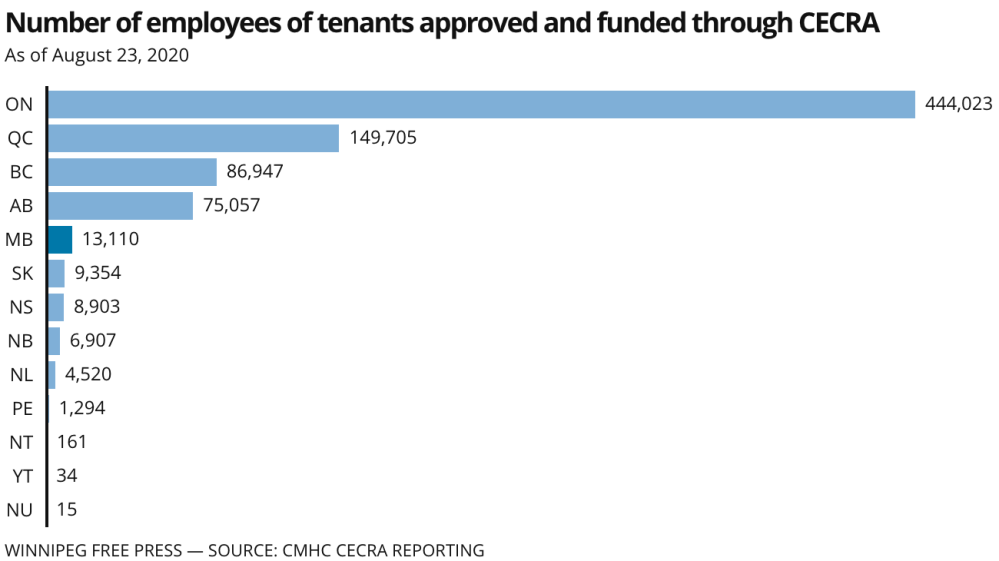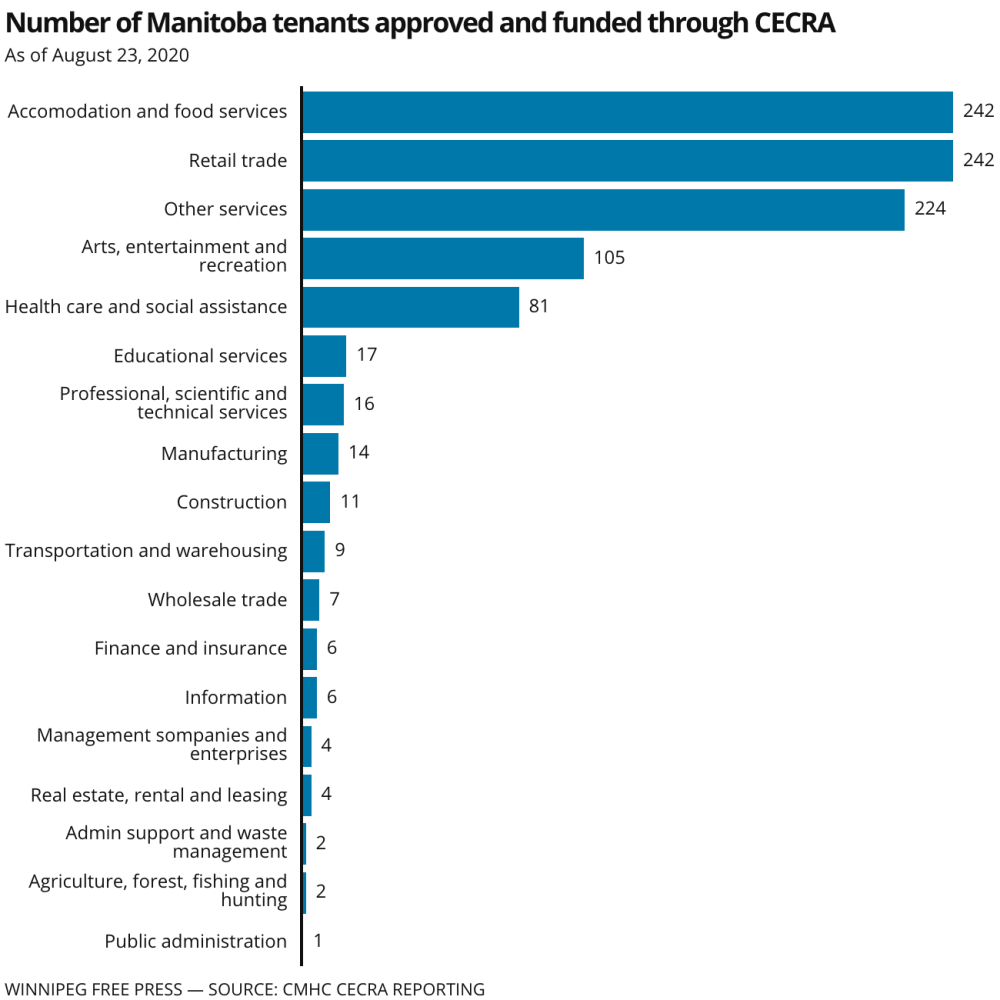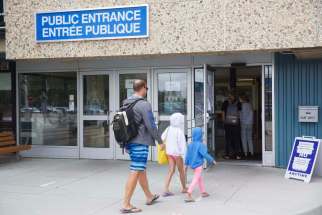Commercial-rent program disastrous for businesses
Read this article for free:
or
Already have an account? Log in here »
To continue reading, please subscribe:
Monthly Digital Subscription
$19 $0 for the first 4 weeks*
- Enjoy unlimited reading on winnipegfreepress.com
- Read the E-Edition, our digital replica newspaper
- Access News Break, our award-winning app
- Play interactive puzzles
*No charge for four weeks then billed as $19 plus GST every four weeks. Offer only available to new and qualified returning subscribers. Cancel any time.
Read unlimited articles for free today:
or
Already have an account? Log in here »
Hey there, time traveller!
This article was published 27/08/2020 (1593 days ago), so information in it may no longer be current.
Ottawa’s commercial rent-assistance program is easily the most disastrous aid package any government has rolled out during the pandemic to help struggling businesses.
And it may result in hundreds, perhaps thousands, of companies across Canada not making it past the finish line by the time this crisis is over.
The Canada Emergency Commercial Rent Assistance program was almost doomed to failure the moment it was announced, mostly because of its exceptionally poor design and almost impossible qualifying rules.
Unlike most other federal programs that were quickly ushered out the door at the beginning of the pandemic (in order to get money into the hands of consumers and businesses as fast as possible), the Trudeau government has refused to make any substantial changes to how CECRA is administered. It’s no surprise it’s been significantly undersubscribed.
According to records obtained by the Free Press, only $983 million of the program’s $3 billion has been spent, including $11 million in Manitoba.
The reasons are simple: renters can only access the support if their landlords are willing to participate. And businesses must show they’ve lost at least 70 per cent of their revenue as a result of the pandemic. There’s no flexibility beyond that. If a landlord refuses to apply (many have been unwilling to forgo the required 25 per cent of the rent they would normally collect) the renter is out of luck. Even if the landlord does subscribe, businesses don’t qualify if they don’t meet the revenue drop threshhold. There’s no sliding scale; it’s 70 per cent or nothing. Which means businesses struggling with a 50 per cent or 60 per cent revenue decline (enough to bankrupt many) get nothing.
Rent is often a company’s single largest fixed cost. There aren’t many businesses out there that can survive multiple months of massive revenue declines without some kind of financial assistance. Given that governments have forced many of them to close or restrict operations, it is incumbent upon them to provide that assistance.
A recent Canadian Federation of Independent Business member survey found 31 per cent of Canadian companies (25 per cent in Manitoba) said they still need government help. The top reason given was to cover commercial rent and other fixed costs (cited by 66 per cent of those who said they still need financial assistance).
Taxpayers can cut governments some slack for not getting everything exactly right during this pandemic, especially when it comes to financial aid packages. For all its faults, the Canada Emergency Response Benefit, for example, largely did what it was supposed to do. And when Ottawa’s initial wage subsidy program didn’t quite cut the mustard, the federal government agreed to make changes to it.
But for some inexplicable reason, they’ve refused to make major changes to CECRA beyond extending it by two months (which does nothing for the businesses that don’t qualify in the first place). Even when it was obvious weeks ago that the program wasn’t working, the Trudeau government refused to alter it. It’s the mostly poorly designed of all the pandemic relief programs, yet it’s the one government is most adamant about not revisiting.
What Ottawa should have done from the very beginning is provide assistance directly to renters on an income-tested basis. That’s essentially what business groups – and now some provincial governments, including Manitoba – have been calling for.
It’s a fairly easy fix and it’s perplexing that Ottawa hasn’t acted on those recommendations. They’ve already allocated the money; they have over $2 billion that has not been used.
Some provinces and business groups are holding out hope that new federal Finance Minister Chrystia Freeland may be more willing to make changes to the program’s criteria than her predecessor was. If she is, she better act quickly because, not only is the program starting to wind down, there are many companies out there hanging on for dear life that could be one rent payment away from going over the cliff.
Failure to act on this could have incalculable consequences.
tom.brodbeck@freepress.mb.ca

Tom Brodbeck
Columnist
Tom has been covering Manitoba politics since the early 1990s and joined the Winnipeg Free Press news team in 2019.
Our newsroom depends on a growing audience of readers to power our journalism. If you are not a paid reader, please consider becoming a subscriber.
Our newsroom depends on its audience of readers to power our journalism. Thank you for your support.

